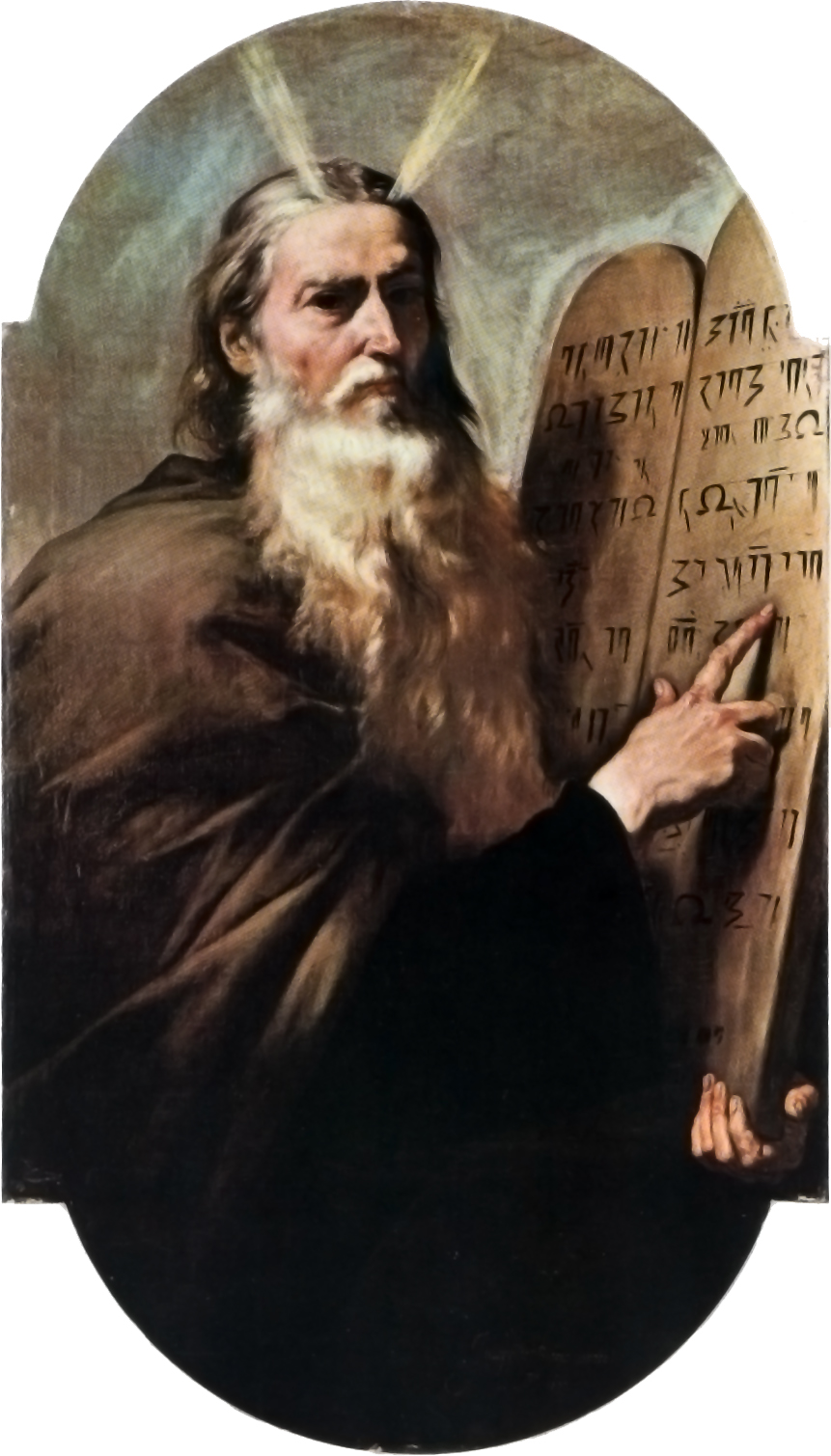
Mosaic authorship
Mosaic authorship is the Judeo-Christian tradition that the Torah, the first five books of the Hebrew Bible/Old Testament, were dictated by God to Moses.[1] The tradition probably began with the legalistic code of the Book of Deuteronomy and was then gradually extended until Moses, as the central character, came to be regarded not just as the mediator of law but as author of both laws and narrative.[2][3]
See also: Composition of the Torah
The books of the Torah do not name any author, as authorship was not considered important by the society that produced them,[4][5] and it was only after Jews came into intense contact with author-centric Hellenistic culture in the late Second Temple period that the rabbis began to find authors for their scriptures.[4] By the 1st century CE, it was already common practice to refer to the five as the "Law of Moses", but the first unequivocal expression of the idea that this meant authorship appears in the Babylonian Talmud, an encyclopedia of Jewish tradition and scholarship composed between 200 and 500 CE.[6][7] There, the rabbis noticed and addressed such issues as how Moses had received the divine revelation,[8] how it was curated and transmitted to later generations, and how difficult passages such as the last verses of Deuteronomy, which describe his death, were to be explained.[9] This culminated in the 8th of Maimonides' 13 Principles of Faith, establishing belief in Mosaic authorship as an article of Jewish belief.[10]
Mosaic authorship of the Torah was unquestioned by both Jews and Christians until the European Enlightenment, when the systematic study of the five books led the majority of scholars to conclude that they are the product of multiple authors throughout many centuries.[11] Despite this, the role of Moses is an article of faith in traditional Jewish circles and for some Christian Evangelical scholars, for whom it remains crucial to their understanding of the unity and authority of the Bible.[12]
Development of the tradition[edit]
The Torah (or Pentateuch, as biblical scholars sometimes call it) is the collective name for the first five books of the Bible: Genesis, Exodus, Leviticus, Numbers, and Deuteronomy.[13][Notes 1] It forms the charter myth of Israel, the story of the people's origins and the foundations of their culture and institutions,[14] and it is a fundamental principle of Judaism that the relationship between God and his chosen people was set out on Mount Sinai through the Torah.[15]
The development of the Torah began by around 600 BCE, when previously unconnected material began to be drawn together. By around 400 BCE these books, the forerunners of the Torah, had reached their modern form and began to be recognised as complete, unchangeable, and sacred. By around 200 BCE, the five books were accepted as the first section of the Jewish canon.[16][Notes 2] It seems that the tradition of Mosaic authorship was first applied to Deuteronomy,[3] which scholars generally agree was composed in Jerusalem during the reform program of King Josiah in the late 7th century BCE;[17] it is this law-code that books such as Joshua and Kings (completed in the mid-6th century BCE[18]) mean when they speak of the "torah of Moses".[3] In later books such as Chronicles and Ezra–Nehemiah the meaning had expanded to include the other laws such as Leviticus, and by the Hellenistic period, Jewish writers referred to the entirety of the five books, narrative and laws, as the Book (or books) of Moses.[3]
Authorship was not considered important by the society that produced the Hebrew Bible (the Protestant Old Testament), and the Torah never names an author.[4][5] It was only after c. 300 BCE, when Jews came into intense contact with author-centric Greek culture, that the rabbis began to feel compelled to find authors for their books,[4][Notes 3] and the process which led to Moses becoming identified as the author of the Torah may have been influenced by three factors: first, by a number of passages in which he is said to write something, frequently at the command of God, although these passages never appear to apply to the entire five books; second, by his key role in four of the five books (Genesis is the exception); and finally, by the way in which his authority as lawgiver and liberator of Israel united the story and laws of the Pentateuch.[19][Notes 4]